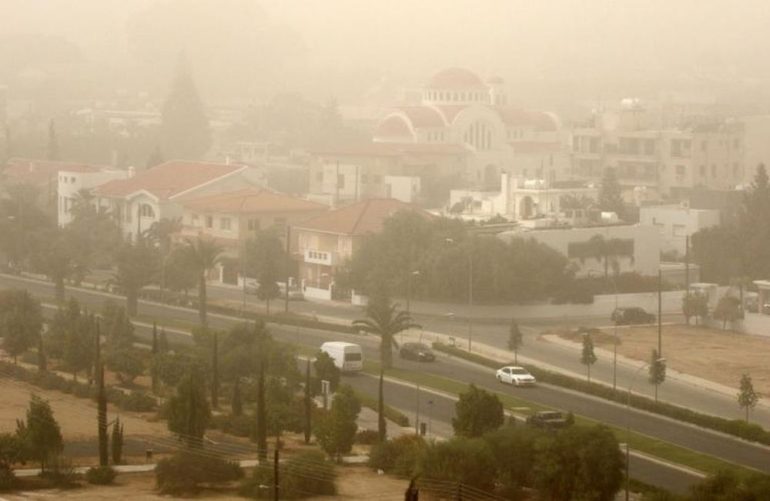Pulmonologist Haris Armeutis recommends avoiding exposure to dust, sounding the alarm for vulnerable groups, who, as he notes, must be protected.
According to the Meteorological Service, tonight it is possible to observe thin dust in the atmosphere, while on Thursday also dust will be observed in the atmosphere from time to time.
In his statements to the Cyprus News Agency, Dr. Armeutis stated that "in essence, dust also means inhalable suspended particles, which are present in the atmosphere and because they have such a small diameter they can pass through, being completely inhalable in the lung because they cannot be filtered by the mechanisms of the respiratory system".
And because, he explained, these microparticles during their course are also enriched with various chemical compounds, various oxides cause a significant type of inflammation in the respiratory system, so when there are increased levels in the atmosphere, increased concentrations of dust, especially vulnerable groups must be careful.
Vulnerable groups are patients suffering from bronchial asthma, chronic obstructive pulmonary disease or other diseases, the elderly and those suffering from various cardiovascular diseases.
Dr. Armeutis pointed out that the increased dust levels can mainly affect patients with pulmonary diseases but also with diseases of the cardiovascular system.
"When there are these elevated levels their inhalation can lead these patients to deregulation of their diseases such as for example patients with bronchial asthma or chronic obstructive pulmonary disease to enter a situation called exacerbation, the exacerbation of the disease and having to seek help at First Aid due to worsening symptoms. Many times they may endanger their own lives. That is why it is recorded in studies that on some days when there are increased levels of dust, these patients are the ones at risk", he noted.
The basic recommendation, according to Dr. Armeutis, is to take general precautionary measures and avoid moving in open spaces until the phenomenon subsides, to avoid outdoor activities and exercise, and for workers in open spaces to use appropriate protective measures, such as high protection mask.
The important thing, he said, is to follow the update on the dust levels and on the days we know this phenomenon will be there to take our measures.
Patients, he concluded, must remain committed to their treatment and if they have any dysregulation problem they should contact their doctor immediately.
